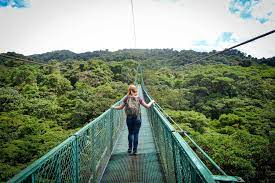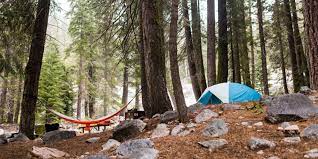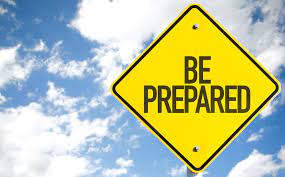Camping is an exhilarating and invigorating way to reconnect with nature, but it is critical to emphasize safety during your outdoor trip. Whether you're a seasoned camper or a novice, recognizing and implementing camping safety recommendations will help ensure a safe and happy time. This post will go over critical safety precautions to take before, during, and after your camping excursion.
1. Thoroughly investigate Your Destination:
Before leaving on your camping vacation, thoroughly investigate your destination. Understand the local weather, wildlife, and any potential threats. Check for any travel advisories or limitations, and make sure you have the required licenses or authorization for camping in the area.
2. Create and Share a Detailed Itinerary:
Make a detailed itinerary that includes your camping location, planned activities, and projected length of stay. Give this information to a trustworthy friend or family member so they know where you'll be and when you'll be back. In the event of an emergency, having someone aware of your plans can be extremely beneficial.
3. Pack Adequate Safety Equipment:
Make a camping checklist and make sure you have all of the necessary safety equipment. This could include a first-aid kit, enough water, extra food, navigation equipment (map, compass, or GPS), a flashlight with extra batteries, a fire extinguisher, and a whistle for signaling in an emergency. Remember to carry adequate clothing and equipment for the weather conditions.
4. Choose Your Campsite Wisely:
When selecting a campsite, prioritize safety. Look for flat terrain away from dead trees, huge rocks, and unstable terrain. Remove any rubbish, branches, or pebbles that could cause an accident. Set up your tent away from potential risks such as flash flood-prone rivers or steep hills that could be problematic during heavy rain.
5. Exercise Fire Safety:
Campfires can give warmth, cooking opportunities, and a comfortable ambiance, but they must be handled responsibly. Follow these fire safety precautions:
- Determine whether campfires are permitted and whether any fire restrictions apply.
- Keep your campfire a safe distance away from tents, trees, and combustible materials.
- Remove any dried leaves, grass, or debris from the area around the fire pit.
- Never leave a fire unattended, and always totally extinguish it before leaving or going to sleep.
6. wildlife Awareness:
Learn about the local fauna and take appropriate measures. Food should be kept in animal-proof containers or hung high above the ground between trees. Feeding or approaching wild animals should be avoided since they might grow hostile when used to human food. Respect their natural habitat and keep a safe distance from them.
7. Be Prepared for Emergencies:
Emergencies can happen even with meticulous planning. Prepare yourself with information and abilities to deal with probable problems. Learn basic first aid practices and how to recognize and treat common camping injuries. Carry a fully charged cell phone and store emergency contact information. Consider bringing a satellite phone or personal locating beacon in isolated places for enhanced safety.
8. Follow the Leave No Trace Principles:
It is critical to preserve the natural environment for future generations. Leave No Trace principles include packing out all waste, limiting campfire impact, respecting wildlife, keeping on approved pathways, and avoiding excessive noise that disturbs wildlife and other campers.



















0 Comments